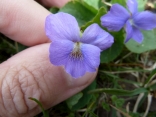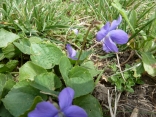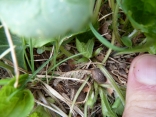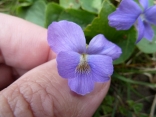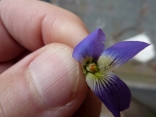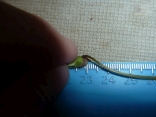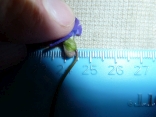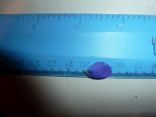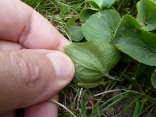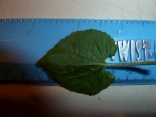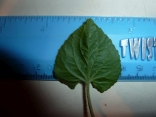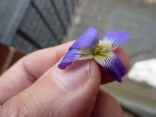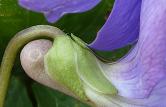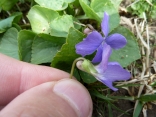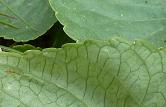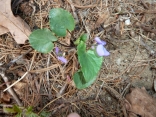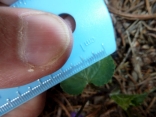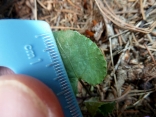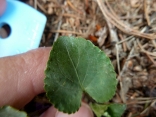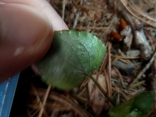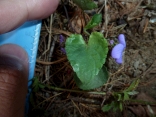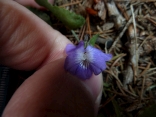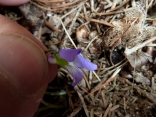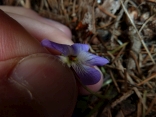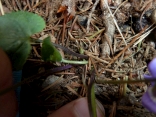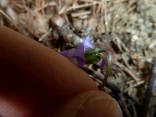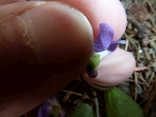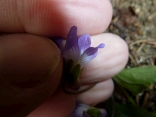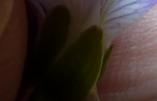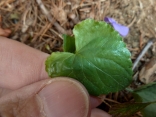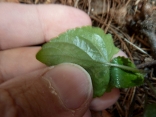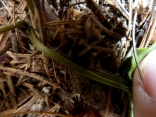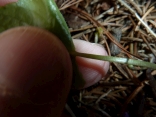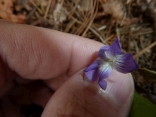Differentiating between violet species is sometimes difficult (for me). But the new botanical guide by Arthur Haines, Flora Novae Angliae: A Manual for the Identification of Native and Naturalized Higher Vascular Plants of New England makes it a bit easier. From the pictures below, you can see the flow of steps used to identify this species of violet:
- Leaves and flower stems arising from rhizomes (underground stems) or stolons (horizontal stem creeping along the ground).
- Flower petals mostly purple, violet or white.
- Style (thin tube in the center of flower connecting the ovary) in a scoop-shaped or conical beak. The ovary is hairless.
- The spur (sticking out of the back of the flower) is 3.2mm long or less and less than 2 times long as it is wide.
- Flowers mostly purple. No stolons produced.
- Leaf blades unlobed.
- Leaf blades less than 1.75 times as long as wide.
- Hairs of the lower flower petals longer than 1mm.
- Sepals (outer lobes of the flower -- often green leaf-like structures at the base of the flower) are eciliate (without hairs on the edge).
- Sepals are narrowly-egg-shaped to oblong (2-4 times longer than broad) with a blunt or rounded tip. This one was a close call. If I was wrong in this and the sepals are lanceolate (lance-shaped -- much longer than wide with widest point below the middle) and the tip comes to a point, then this violet would be Pectinate-Leaved Violet (Viola pectinata).
- Leaf blades as wide (or wider) than long and hairless. Side flower petals directed forward.
